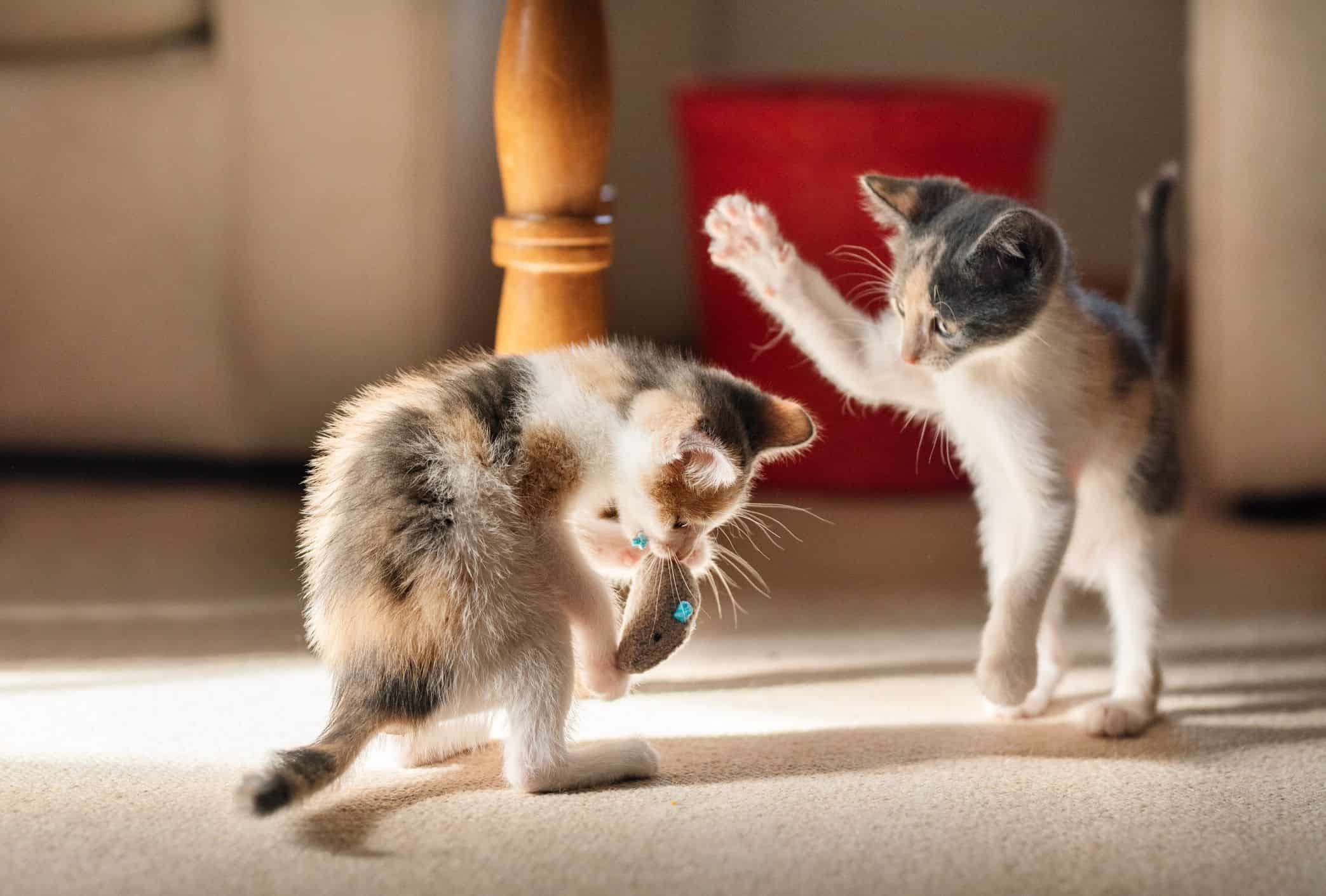Is Training a Kitten Not to Bite or Scratch Even Possible?

Kittens love to play, but the predatory instincts that guide them can cause accidental harm to their partner. Additionally, owners can inadvertently reinforce bad behaviors by using their hands and fingers to entice their kitten to play. Training a kitten your rules for play isn’t hard, but it requires consistency and patience. With our tips, you’ll be playing without blood in no time!
Hands Are Not Toys
Owners of kittens commonly make the mistake of using their hands as part of play. If you can avoid this from the beginning, it may save you time (and band-aids) in the long run. It’s worth noting that your kitten isn’t trying to hurt you, they just don’t yet have the skills or experience to understand their effect. Watch for batting, chasing, pouncing, stalking, ambushing, and biting. These actions tune them into their instincts and are important aspects to their mental and physical development. Keeping them active is an essential part of responsible cat ownership.
Interpreting Body Language
When you play with your kitten, take special notice of their body language. Their tails and ears are great indicators of aggression. They may also hiss, vocalize, or puff up their fur. Dilated pupils, crouched legs, frozen stance, and sudden movements are signs that indicate they need space. If you keep playing the same way, they may bite or scratch you in retaliation.
When Play Gets Rough
Play time can take on facets of aggression, but it’s not to be confused with true feline aggression. A kitten that bites or scratches you will benefit from some guidance from their owner such as:
- Keeping all focus on your kitten’s toys that help them develop skills.
- Using the same word like “no” or “ouch” when they attempt to bite or scratch you during play. Stop playing with them and move to a different room.
- Ignoring their behavior when they get too wild. They’ll learn that they don’t get any feedback from you when they act like that.
- Using the power of redirection to get your kitten out of “attack mode.”
- Investing in high-quality scratching posts and cat trees to encourage proper places for scratching.
- Keeping their claws trimmed.
If you only have one kitten, be prepared to spend more time teaching and training them. They’ll get there, but possibly not as fast as in multi-cat households. Kittens that are under-stimulated may act up more often.
Remember that overstimulation can be equally damaging. Too much play can lead to an irritable, tired, or aggressive kitty. Observe their body language and give them space.
Training a Kitten
Your kitten may pretend to bite or scratch you. This can be interpreted as a show of affection, or an attempt to communicate or grab attention. Never scold or punish your kitten for play fighting. It’s what they’re genes are telling them to do. Use this opportunity to play with your kitten, and show them lots of love.
If you are bitten or scratched, always wash the wound site with soap and water.
Please call us at (916) 624-PETS (7387) with further questions about training a kitten to behave. Our veterinarians are always here for you at Rocklin Ranch Veterinary Hospital.

